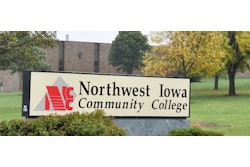MADISON, Wis. – The University of Wisconsin’s two-year colleges could soon have the power to offer limited four-year degrees under a plan aimed at serving adult students in mostly rural areas.
The proposed bachelors of applied arts and sciences degree would be geared toward “place-bound students” who have earned associate’s degrees but cannot transfer to finish at four-year universities. Courses would emphasize skills like problem-solving and communication that local employers say are needed to improve their work force.
University officials say the degree would be a cheaper and better alternative to distance learning programs offered by for-profit colleges such as the University of Phoenix. The Board of Regents were to consider the plan during a meeting at UW-Milwaukee on Thursday.
Completing the program would offer the unemployed a better chance at finding work and helping those already with jobs advance in their fields, said David Wilson, outgoing chancellor of the 13 two-year college system and UW-Extension.
“We want to provide these individuals around the state with a high-quality, reasonably priced baccalaureate degree that will enable them to contribute handsomely to their local area and stay in the region,” Wilson said. “We think this is a very, very innovative degree.”
The plan would give five campuses—UW-Baraboo/Sauk County, UW-Barron County, UW-Marshfield/Wood County, UW-Richland, and UW-Rock County—the ability to offer the degrees. The mission of the college system would be changed, which means other campuses could follow suit after a five-year trial period.
Wilson said the campuses were chosen because their populations lag behind the state average for four-year degree holders. Many of them have also been hit hard economically, with layoffs and plant closings in those areas in recent years.














